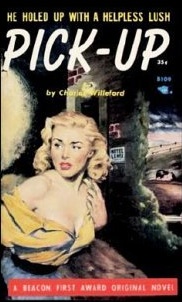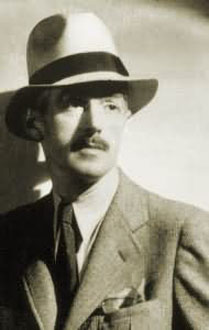
Gawker christened "fauxhemians" as the new word for "hipsters." I agree with the decision; I voted for that word twice.
But the past without introspection is just...boring. So a few weeks ago, I was reminded of a nice little "hipster" gem: The Hipster Handbook by Robert Lanham (Anchor Books, 2003) which I plucked from the cheap confines of Paperback Swap.
First things first: I shouldn't tread to try and criticize this thing. Not according to the haughty reviews such as this one: "The Hipster Handbook is so comprehensive and so well-done that only a poseur could criticize it without tongue in cheek."
Oh dang. It warded off critics before any critics dared to open the book.
The book is only 7 years ago, but that's at least a decade in faux-hipster-hemian terms. The cover is adorned with a shadow with a faux-hawk. And speaking of hair, the book uses the word "mulletude" with all seriousness.
Otherwise, at an attempt to be sarcastic or to deflect criticism, the book tries to institute two new words---"deck" and "fin."

Astute readers will notice one of those words in the title of my blog, so here's the truth: my blog name is partially derived from this book.
HCD first heard of this book, back when we were in "college" and and learned of Mr. Lanham's continuous "deck" ("cutting edge") vs. "fin" ("similar to outdated terms like 'wack' and 'lame'") debate that runs in the most annoying way possible across the book.
In an attempt to become Williamsburg-cool, HCD would evoke the word "deck" to deride specific corporate attempts to engage him i.e. his money: "This commercial is so deck," HCD would say, while watching a Honda Element commercial. "They are trying to appeal to me. I wish I could buy one right now!"
Hence: DECK-FIGHT (that means I don't like the word "deck" in Lanham's context).
I'm sure Mr. Lanham meant for the word to be mocked (can't everyone tell I'm joking??? he would say) while secretly hoping it would catch on. Here's the final verdict, Mr. Lanham--it did not catch on.
And I'm serious about this deck and fin thing. He uses it almost every page. EVERY PAGE, as if he is afraid "deck" and "fin" and "hipsters" will go out of style...oh wait.
As a history book, then Mr. Lanham's book cannot be fully trusted. Very often, his terms are way-off, but he does find accurate portrayals of SOME type of boho-hipsters. Like fake cowboys and girls in long black skirts with messenger bags on bikes.
But look at this guy:

Yes, that says "bipster." According to accurate Google search results, "bipster" usually refers to a style of UGG boots. Only other self-aware hipster outlets like Urban Dictionary use the word with Lanham's intention.
Lanham also tries to rank past celebrities into hipsters and non-hipsters, using the word "deck" in reference to Amelia Earhart, e.e. cummings and Sitting Bull and Yul Brynner. Those disapproved are Clark Gable, Raymond Chandler and John The Baptist.
I like Raymond Chandler and John The Baptist alright.
Beyond the penchant for bad lingo, Lanham does get a few things right. The hipster literature section hit too close to home. Besides the usual suspects (Dennis Cooper, David Foster Wallace), there's also Jim Thompson's The Killer Inside Me, which I just read for the first time last year and named it the best book I read last year. Guilty as charged.
Surprisingly he named Thomas Pynchon's Mason & Dixon ahead of Gravity's Rainbow...hmmmm, think the hipster prefer the latter...
He also lists Public Enemy's It Takes a Nation of Millions to Hold Us Back as the third fave hipster album of the 80s and that's definitely held true for all the non-hipsters in the past 7 years.
Some of the social rules are also accurate, like a section on a hipster dating a non-hipster. "Hipster men often find the forbidden fruit of a sorority girl or a personal trainer to be the sweetest of all" and "[Hipsters] can also find pleasure in being considered the most outrageous person at the party when mingling with their lover's non-Hipster friends."
But now I have a new problem. What do I do with this book now? What are the rules for that?
Bottom line: Am I deck or fin if I use this book to light my grill while drinking a PBR? More after the jump...


















